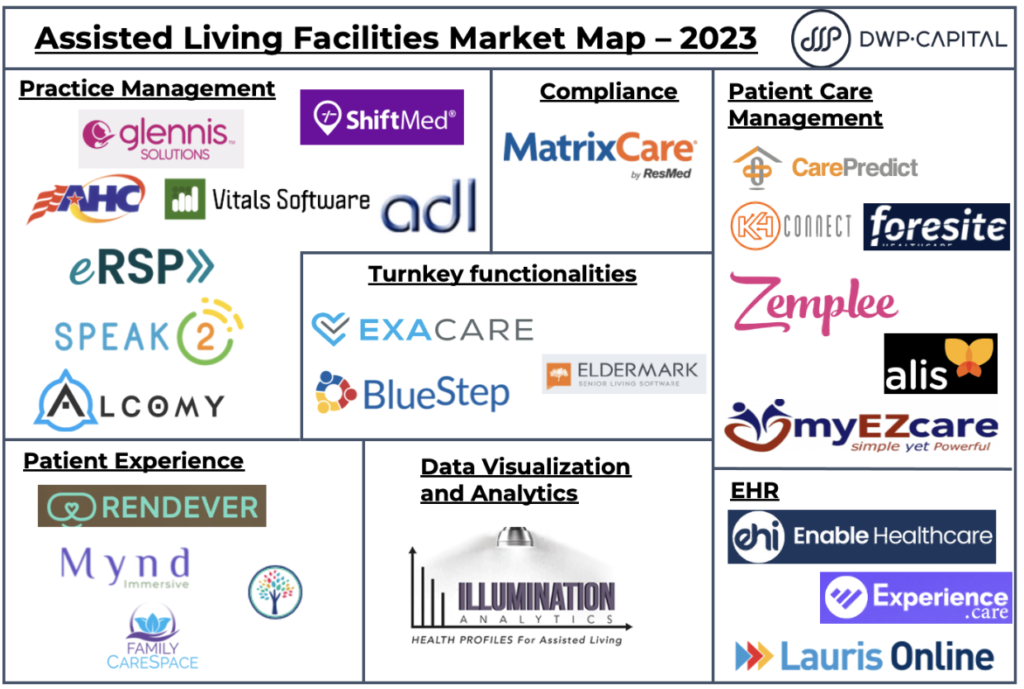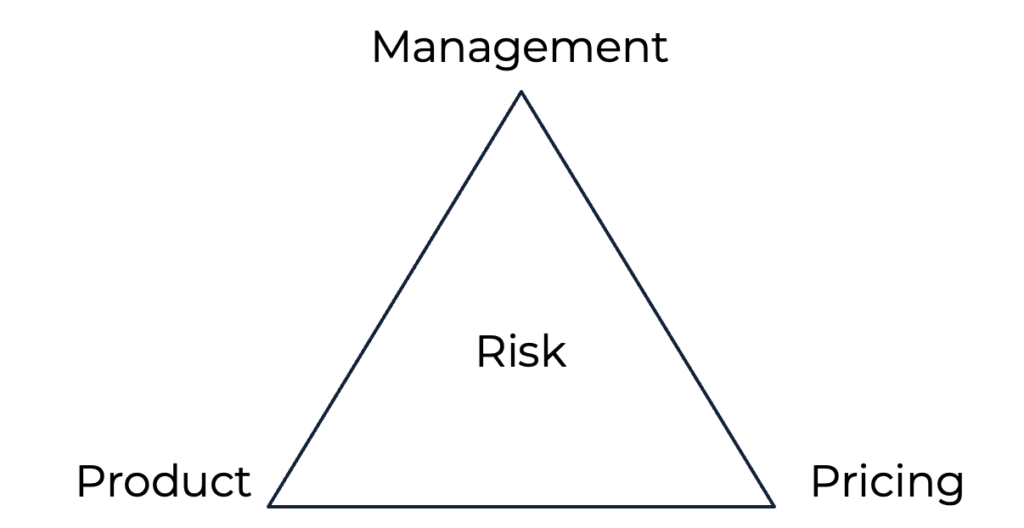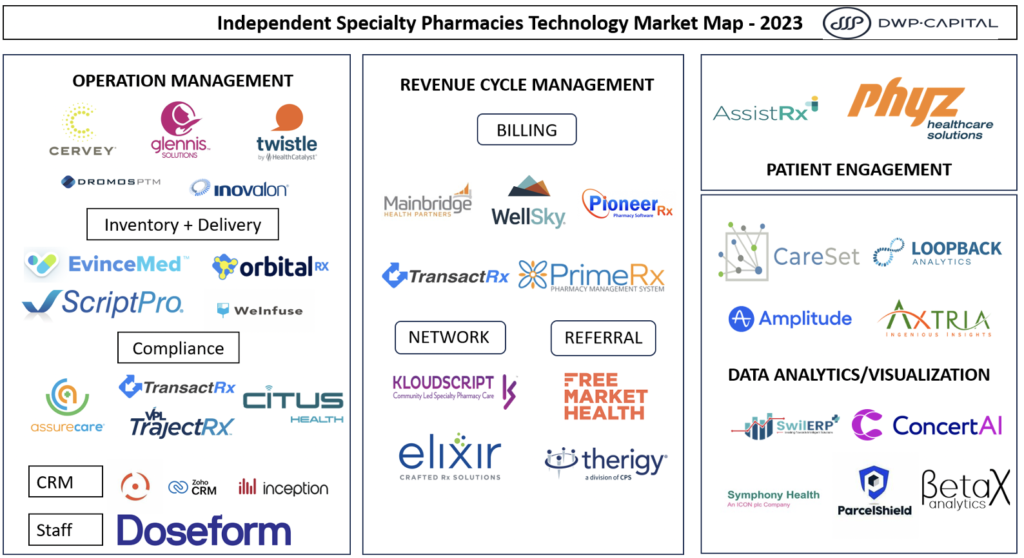
by Conor Burns
Medical tourism, a rapidly evolving sector within the healthcare industry, involves individuals traveling across international borders to receive medical treatment, often coupled with a vacation or leisure experience. Vertical Software-as-a-Service (SaaS) companies targeting the medical tourism industry are positioned to capitalize on this trend by providing specialized technology solutions to facilitate seamless experiences for patients, medical providers, and travel organizations.
Medical tourism has gained traction due to several key factors. Firstly, the rising costs of healthcare services in many developed countries have pushed individuals to seek more affordable alternatives without compromising on quality. Additionally, advancements in medical technology and the globalization of healthcare standards have increased confidence in seeking medical procedures abroad. These drivers have led to a surge in medical tourists seeking procedures ranging from elective surgeries to complex treatments.
Vertical SaaS companies in the medical tourism sector offer a range of services that streamline the entire process for patients. This includes online platforms for researching and selecting medical providers, booking appointments, arranging travel logistics, securing accommodation, and post-treatment follow-up. By integrating all these aspects into a cohesive platform, these companies provide transparency, convenience, and personalized support throughout the medical tourism journey. Moreover, the growth of telemedicine and digital health solutions has further augmented the potential for innovation within this sector. Telehealth consultations enable patients to connect with medical professionals in different countries, facilitating pre-travel consultations, second opinions, and post-operative care. Virtual platforms also empower medical tourism providers to offer remote monitoring, reducing the need for prolonged stays and enhancing patient safety.
The medical tourism industry has seen substantial growth over the past decade, with a projected compound annual growth rate (CAGR) of around 8% from 2021 to 2028, leading to an estimated market size of $100 billion by 2028. This trajectory can be attributed to increasing awareness, acceptance, and adoption of medical tourism practices. As more patients consider cross-border healthcare options, the demand for efficient and reliable solutions provided by vertical SaaS companies is set to rise.
The Problem:
In the medical tourism industry, a pervasive challenge arises from the lack of standardized and centralized information platforms for patients, medical providers, and travel organizers. The absence of a unified ecosystem often leads to inefficiencies, fragmented communication, and a disjointed patient experience. This fragmentation is particularly evident in the absence of platforms that seamlessly connect patients with reputable medical facilities, provide transparent pricing information, facilitate pre- and post-procedure consultations, and manage travel logistics.
As a result, patients may struggle to navigate the complex landscape of medical tourism, leading to uncertainties about treatment quality, cost, and post-operative care. This problem presents an opportunity for vertical SaaS companies to capitalize on by developing comprehensive platforms that integrate all aspects of the medical tourism journey. By creating user-friendly interfaces that cater to patients’ needs while also supporting medical providers in streamlining operations and maintaining international standards, these companies can bridge the existing gaps and enhance the overall medical tourism experience.
Capabilities:
In the context of the medical tourism industry, technology-enabled capabilities are poised to revolutionize the way patients and medical providers interact, offering tailored solutions that address distinct pain points:
- Destination Selection and Treatment Planning Platforms: Advanced technology platforms (e.g. MediChoice and TreatmentFinder) leverage patient-specific medical data and preferences to suggest suitable medical tourism destinations and treatment options. These platforms take into account factors such as medical expertise, facility quality, cost-effectiveness, and patient reviews to provide personalized recommendations, enhancing the decision-making process for patients. These platforms typically have marketplace or managed marketplace business models.
- Virtual Consultation and Telemedicine Services: Telehealth solutions (e.g. MediConnect and MedVirtue) facilitate remote consultations between patients and international medical professionals. These platforms allow patients to connect with doctors, specialists, and surgeons for pre-treatment assessments, discussions about procedures, and post-operative follow-ups, minimizing the need for physical travel while ensuring comprehensive care.
- Transparent Cost Estimation and Financial Planning Tools: Companies like PriceMed and HealthWallet offer technology-driven tools that enable patients to obtain accurate cost estimates for medical procedures across different locations. These platforms break down expenses, including medical fees, travel costs, accommodation, and additional services, helping patients plan their budget effectively and make informed decisions.
- Integrated Travel and Medical Itinerary Management: Innovative platforms such as TripHealth and MedVoyage combine medical appointments with travel logistics seamlessly. These solutions not only coordinate medical procedures but also manage flight bookings, visa assistance, airport transfers, local transportation, and leisure activities, creating a holistic experience for medical tourists.
- Quality Accreditation and Medical Facility Verification Services: Technology-driven organizations like MedAccred and GlobalHealthTrust offer verification and accreditation services that ensure the quality and safety of medical facilities. These platforms assess medical providers based on international standards, providing patients with a transparent view of the capabilities and credibility of their chosen healthcare destinations.
- Multilingual Patient Support and Cultural Orientation: Language and cultural barriers can pose challenges for medical tourists. Platforms like MediLingo and CulturCare address this by offering real-time translation services, multilingual medical support, and cultural orientation guides. This ensures effective communication between patients and medical teams, enhancing patient comfort and understanding.
- Post-Treatment Monitoring and Follow-Up Platforms: Technology-enabled solutions such as HealWell and MedTrack enable medical providers to monitor patient recovery remotely through digital health tools. Patients can report progress, upload medical data, and receive guidance from healthcare professionals, ensuring continuous care even after returning home.
- Secure Medical Data Exchange and Privacy Solutions: Several platforms prioritize the security and privacy of patient data during medical tourism (e.g. MedSecure and HealthGuardian). These solutions employ advanced encryption and data-sharing protocols to ensure that sensitive medical information is protected throughout the patient journey.
Technology-driven capabilities within the medical tourism industry encompass a range of tailored solutions that cater to the unique needs and challenges of patients seeking international medical care. By addressing factors such as destination selection, cost estimation, remote consultations, itinerary management, quality assurance, patient support, and data security, these capabilities are reshaping the medical tourism landscape and fostering a more accessible and patient-centric healthcare experience.
Conclusion:
Overall, the medical tourism industry stands at the crossroads of technological innovation and patient-centered care, offering a landscape rich with opportunities for transformative growth. Through technology-enabled capabilities, the industry can overcome the challenges of geographical barriers, language differences, cost complexities, and quality assurance concerns. As medical tourists increasingly seek comprehensive solutions that seamlessly integrate medical procedures, travel logistics, and post-treatment care, Vertical SaaS companies have a unique chance to lead this paradigm shift.
By harnessing the power of virtual consultations, personalized treatment planning, transparent cost estimation, integrated travel itineraries, quality accreditation, multilingual support, remote monitoring, and secure data exchange, these companies can redefine the medical tourism experience. This evolution not only empowers patients with informed decisions and holistic care but also augments the global reach of medical providers. As the industry continues to grow and adapt, strategic investment in these technology-driven capabilities will undoubtedly play a pivotal role in shaping the future of medical tourism, enhancing accessibility, quality, and convenience for patients worldwide.









